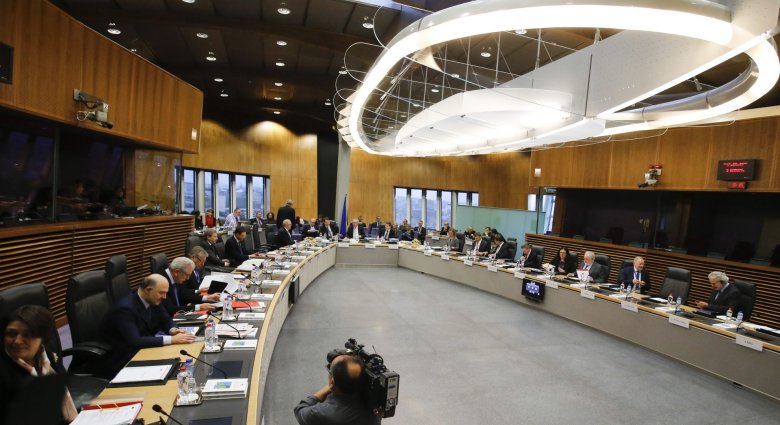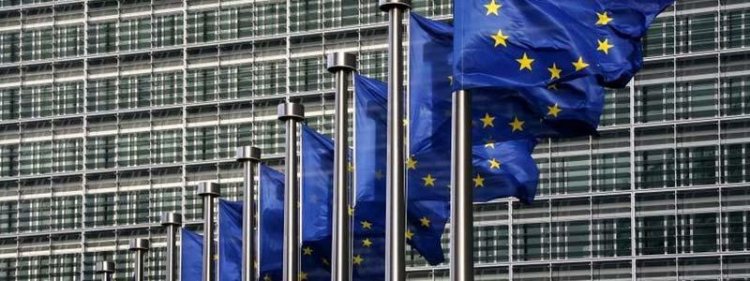
European Commission on VAT
 The European Commission has set up an action plan for a VAT collection system. Until now, unfortunately, the fraud associated with it has cost the countries of the European Union billions of euros. In addition to sealing the system, the EC also intends to simplify the current regulations and make it easier for individual states to decide on the reduction of rates.
The European Commission has set up an action plan for a VAT collection system. Until now, unfortunately, the fraud associated with it has cost the countries of the European Union billions of euros. In addition to sealing the system, the EC also intends to simplify the current regulations and make it easier for individual states to decide on the reduction of rates.
During a press conference on planned changes, EU Economic and Financial Affairs Commissioner Pierre Moscovici pointed out that every year the EU Member States lose around €170 billion as a result of tax fraud. This is all the more acute given that this money could feed schools, hospitals and defence systems, but it would also be an invaluable support for further investment and thus for economic growth in the EU. At present, a huge problem is the so-called cross-border fraud, which costs EU Member States, including Poland, up to 50 billion a year, which they should receive from VAT. A tax carousel allows some companies to avoid paying such a tax, which causes big problems for honest businesses, and individual countries have much lower revenues for their budgets.
The current VAT system has a number of loopholes that are being exploited to the full by fraudsters of the EU. It is not surprising, however, that the system for cross-border trade was created in 1993 as a "transitional" system. However, it is to be changed soon, as the EC plan provides for the creation of a uniform VAT area within the EU. What exactly is it supposed to be about? As before, cross-border transactions will continue to be taxed at the rates that apply in the Member State of destination. What will change, however, is the way in which these taxes will be collected. The aim will, of course, be to limit the scope for tax fraud. According to Moscovic, these cross-border transactions should be treated exactly the same as those taking place within a single country. It will therefore not matter whether the transaction takes place between individual countries or between cities in one country.

Will such a solution actually have the desired effect? According to the European Commission, such actions may reduce VAT losses by as much as 80 percent. Therefore, a concrete plan is to be presented in the near future, which will make it possible to strengthen certain tools for exchanging information on VAT fraud or systemic fraud between all the Member States of the Union. In addition, there are plans to create a dedicated web portal where Member States' businesses can benefit from a simple VAT collection system. Thus, the system for collecting such revenue in the budget of a specific country would also be improved. That is not all, however, because according to this plan, the Union's Member States will also gain greater freedom in setting VAT rates. Until now, a predetermined list of those services and goods which could be subject to a zero or reduced rate of that tax was in force.
An excellent example of this malfunctioning is the United Kingdom, where tampons were subject to 5% VAT, while shavers were exempt from it. Thanks to the new regulations, such cases are no longer to occur. During the conference, Moscovici explained that one of the two prepared solutions may come to life. The first is to maintain a minimum standard rate of 15 % and to keep the list of goods and services subject to reduced VAT rates under constant review, on the basis of information received from all the Member States of the Union. The second possibility, however, is to abolish this list completely, which would mean, however, that additional safeguards would have to be introduced to prevent fraud and to limit unfair tax competition in the Member States. Such measures may result in an increase in compliance costs, which, unfortunately, would be borne by businesses. He is closer to the second solution, which he considers to be a more flexible and modern approach to economic issues, as the Commissioner has said. It is also worth noting that in each of these two cases zero rates and reduced VAT rates will be maintained. Soon, the European Commission also intends to present another proposal, this time concerning VAT on cross-border e-commerce. This includes the possibility of applying the same rates to electronic newspapers, e-books and traditional paper editions. In turn, 2017 is expected to bring a new package of regulations created by the European Commission, which will simplify VAT, thereby also facilitating international trade for small and medium-sized enterprises, which are in the development stage. It should be remembered that VAT is the most important source of revenue for EU Member States. In 2014, this revenue accounted for as much as 7 per cent of the EU's GDP.
See more

Tax policy in European Union

Tax advice - why should I use it?

























